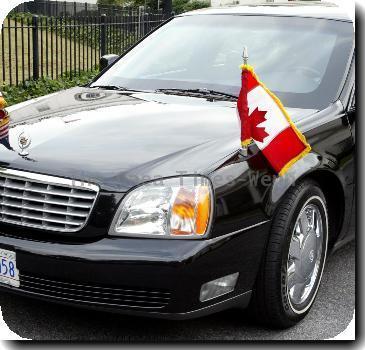US acknowleges limits on initial aid effort in Haiti; promises faster delivery of food, water
By Robert Burns, APFriday, January 15, 2010
US cites limits on aid effort; promises more
WASHINGTON — The Obama administration on Friday acknowledged the limits of its initial relief efforts in Haiti, while promising a quick ramp-up in delivery of water and other badly needed supplies.
The State Department raised the confirmed U.S. death toll from Tuesday’s earthquake to six and said 15 other Americans are presumed to have died. A department spokesman predicted the U.S. toll will rise even further as search-and-rescue efforts in the devastated capital of Port-au-Prince continued.
Dr. Rajiv Shah, the White House’s coordinator of the U.S. relief effort in Haiti, told reporters at the State Department that the main focus of U.S. efforts remains rescuing trapped survivors.
“There is still an important open window of time today, tonight, and perhaps even parts of (Saturday), when we have the ability to save lives,” said Shan, referring to Haitians, Americans and others in the country. Just last week, Shah became administrator of the U.S. Agency for International Development.
The administration’s promises Thursday of help being on the way turned Friday to grimmer talk: predictions that the situation in Haiti is likely to get worse — much worse — before it gets better.
“There are going to be many difficult days ahead,” said Obama, as he spoke for the fourth time on the disaster in three days.
Secretary of State Hillary Rodham Clinton announced she would visit Haiti on Saturday to confer with President Rene Preval and other Haitian leaders — as well as U.S. and international civilian and military officials — on how to further shape the recovery effort and help the government get back on its feet. She cited a “race against time” to stabilize the country before anxiety and anger create additional problems.
Clinton also thanked the Cuban government for opening its airspace to emergency U.S. flights in and out of Haiti.
Shah indicated that relief supplies will begin flowing more freely in the next few days. He said he has pulled together $48 million worth of food assistance that will be sufficient to feed the affected 2 million Haitians for several months. And he said 100,000 ten-liter containers of water will be provided soon.
He and others also said there have been severe physical and logistical limitations on delivery of aid.
“Up to now we’ve been delivering assistance through a garden hose,” State Department spokesman P.J. Crowley said, figuratively speaking, “but now we’re expanding that as we work to create a river in terms of the flow of assistance to Haiti.”
The major limitation, he said, is the inability to use the main port at Port-au-Prince, due to extensive damage from the quake, and the presence of only one airport at which to receive shipments of food, water, medicines and other relief items.
The arrival Friday of the aircraft carrier USS Carl Vinson was like suddenly having “a second airport,” Crowley said.
About 4,200 U.S. military personnel were operating within Haiti or from Navy and Coast vessels offshore, U.S. Southern Command said in an update Friday night.
An additional 6,300 personnel are scheduled to arrive by Monday to help distribute aid and prevent potential rioting among desperate survivors. Officials disclosed on Friday that immediately after the quake, one of the Air Force’s newest unmanned surveillance aircraft, known as the Global Hawk, was redirected from an undisclosed location to survey the damage in Haiti.
More than 2,200 Marines from Camp Lejeune, N.C., were scheduled to leave for Haiti on Saturday aboard three Navy ships — USS Bataan, USS Carter Hall and USS Fort McHenry — with a contingent of helicopters.
Obama pledged long-term reconstruction help in a telephone call to President Rene Preval. He also said Haitians should recognize the constraints on getting assistance to them immediately.
“It will take time to establish distribution points so that we can ensure that resources are delivered safely and effectively and in an orderly fashion,” Obama said at the White House. “But I want the people of Haiti to know that we will do what it takes to save lives and to help them get back on their feet.”
Obama’s spokesman, Robert Gibbs, said repeatedly in his daily briefing that “there are going to be tremendous logistical challenges” to alleviating the suffering.
At the Pentagon, Defense Secretary Robert Gates also noted the restraints on executing a full relief effort. He said, for example, that while airdrops of relief supplies might seem efficient, they could backfire.
“An airdrop is simply going to lead to riots as people try and go after that stuff,” Gates said. “So without any structure for distribution or to provide security when things become available, then it seems to me that’s a formula for contributing to chaos rather than preventing it.”
Adm. Mike Mullen, chairman of the Joint Chiefs of Staff, told reporters that between 9,000 and 10,000 U.S. troops should be in Haiti or off its shores by Monday. And he said the total American presence could expand beyond that.
By the end of Friday there were to be about 1,000 U.S. troops in Haiti, including a couple of hundred soldiers from the 82nd Airborne Division, based at Fort Bragg, N.C., which is focused mainly on delivering water. Mullen said a full brigade from the 82nd Airborne will be there by Sunday. A brigade normally is about 3,500 soldiers.
The primary security force on the island is a United Nations peacekeeping force that was in place before the quake. It consists of about 7,000 U.N. troops and an additional 2,000 police.
Mullen said that while disaster relief is the military’s first priority in Haiti, security duties could not be ruled out.
“Obviously, we’re all focused on the security piece, as well,” he said. “We very much hope to stay ahead of that, but recognize that there are possibilities there that we need to plan for.”
Cheryl Mills, counselor to Hillary Clinton, stressed that the administration hoped to avoid getting pulled into a military security role, although she also did not rule it out.
Also on Friday, the U.S. was given “senior airfield authority” under an agreement between the State Department and Haitian government.
Lt. Gen. Philip Breedlove, the U.S. Air Force’s operations chief, said the agreement is in effect for the next 72 hours. It allows the U.S. to decide what planes can land and in what order.
Associated Press writer Anne Flaherty contributed to this report.
Tags: Barack Obama, Caribbean, Emergency Management, Haiti, Hillary Clinton, Latin America And Caribbean, North America, Rene preval, Search And Rescue Efforts, United States, Washington







